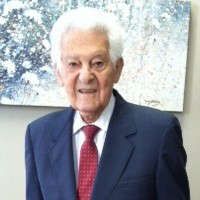Making Sense Of Wisconsin Drunk Driving Acronyms
Making Sense Of Wisconsin Drunk Driving Acronyms
Drunk driving terms and acronyms can be confusing, especially when you consider that each state has its own terminology for drunk driving. The terms you hear in the news may not be the same terms that you’ll hear if you get pulled over by Wisconsin law enforcement officers – and they’ll be different if you’re pulled over in Illinois or Minnesota!
DUI, DWI, BAC, OWI….what do they all mean? Don’t worry, the drunk driving attorneys at Eisenberg Law Offices are here to help you make sense of some of the most common Wisconsin drunk driving acronyms.
Common Wisconsin Drunk Driving Acronyms
If you are facing drunk driving charges in Wisconsin, you’ll want to understand what those charges mean and what exactly you are being charged with, but first you have to make sense of the acronyms.
- BAC: BAC is an acronym for Blood Alcohol Concentration. It is often also referred to as Blood Alcohol Content. The BAC identifies the amount of alcohol in your bloodstream as a percentage at the time of testing. Your blood alcohol content is crucial to your case. BAC is most often determined though a breathalyzer or through blood testing.
- BUI: This is a term you may not have heard before. It stands for Boating Under the Influence. The same laws, but not penalties, apply to boating while intoxicated as driving while intoxicated.
- DL: DL is simply shorthand for Driver’s License. When you are pulled over one of the first things an officer will ask is to see your Driver’s License. They then run it through their database to see if there are any restrictions on it.
- OAR and OAS: Operating While Suspended or Operating While Revoked. Either of these acronyms may appear on your charge sheet if the officer finds that you are driving with a suspended or revoked license.
- FST: FST is Field Sobriety Test. These tests are conducted at the time of the traffic stop and are used to provide evidence that you were driving while intoxicated. While undergoing an FST, you may be asked to perform a Horizontal Gaze Nystagmus (HGN) test, a walk-and-turn (WAT) test, and/or the one-leg stand (OLS) test.
- PAC: BAC is the percentage of alcohol in your blood at the time of testing. PAC, on the other hand, is the percentage of PROHIBITED Alcohol Concentration. Your PAC determines legal intoxication. In Wisconsin, you can have some blood alcohol content, but if your BAC is .08% or higher (.02% if you have 3 prior convictions), you will be considered in violation of the state’s prohibited alcohol concentration law. PAC charges are added in addition to drunk driving charges.
- PC: PC stands for “probable cause”. It’s a term that is used to explain why law enforcement officers pulled you over. The officer needs “probable cause” to believe the driver is intoxicated. Examples of PC include actions such as: driving erratically, speeding, ignoring stop signs or traffic signals, weaving in and out of traffic, odor of intoxicants, slurred speech, and bloodshot eyes.
The Differences Between DUI, DWI, and OWI in Wisconsin
The legal term for drunk driving in Wisconsin is OWI or Operating While Under The Influence. You can see why we shorten it to OWI! OWI applies to drunk driving as well as driving while under the influences of drugs (prescription or illegal). However, what constitutes an OWI in Wisconsin, is referred to as a DUI (Driving Under the Influence) in Illinois and a DWI (Driving While Intoxicated) in Minnesota. In other states, the charge may be a OUI (Operating Under the Influence), DUIL (Driving Under the Influence of Liquor, OMVI (Operating a Motor Vehicle while Intoxicated), or OVI (Operating a Vehicle Under the Influence).
Facing Wisconsin Drunk Driving Charges? Schedule A Free Consultation At Eisenberg Law
If you have been charged with a drunk or impaired driving charge in Wisconsin, start building a strong defense right away. Contact the criminal defense attorneys at Eisenberg Law Offices in Madison for help. We bring over 30 years of experience to each case and will fight aggressively to protect your rights.
Call Eisenberg Law Offices at 608-256-8356 or email Info@eisenberglaw.org to arrange a free consultation.







